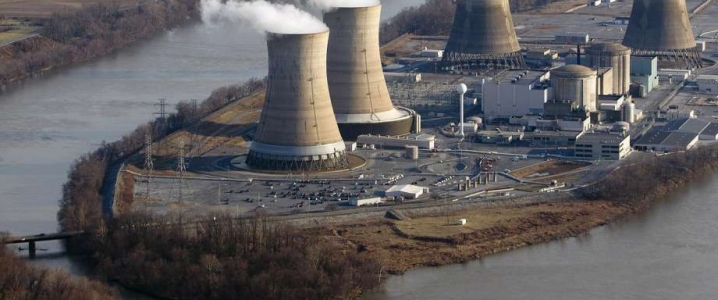Nuclear power could contribute to achieving the Paris Agreement targets on climate change, but it would need help of its own to do that, a new report from the International Atomic Energy agency said.
The 2-degree Celsius scenario of the Paris Agreement will require vast amounts of clean energy amid growing global demand. This means a lot of new capacity—and it seems that solar, wind, and biomass will be unable to shoulder the additional burden in its entirety. Nuclear could help: it is a low-emission energy source, and were it not for the radioactive waste, it would have been the perfect energy source.
Still, even with the radioactive waste, “If nuclear power deployment doesn’t expand in line with this scenario, the other technologies may not fill the gap—and we may not meet our climate targets,” according to IAEA’s Deputy Director General, Mikhail Chudakov.
Nuclear is a sensitive topic at best. It is a major target of those environmentalist groups whose attitude to nuclear energy is the same as it is to fossil fuels: they are best kept in the ground. However, this attitude is rather reductive. If fossil fuels—and uranium—are to be kept in the ground, there need to be alternatives, and there are not enough alternatives as of now. So in the end, the choice might come down to fossil fuels or uranium.
It is not a choice that many would want to make. Fossil fuels are cheap, but high in emissions. Nuclear has its drawbacks too; it is getting increasingly expensive because of the tightening safety standards. This is a serious problem for nuclear’s future contribution to low-emission energy production, the IAEA notes in its report.
The industry is addressing this problem by building more waste repositories and improving its safety mechanisms, as well as by designing reactors with lower waste production levels and “reactors with alternative cost models”. Yet the challenge remains as many nuclear plants are being closed because they have reached the end of their productive lives. More than 50 percent of reactors, the IAEA said in another recent report, are already scheduled for retirement in the coming years. Related: Oil Markets Unfazed By $200 Billion Trade War Escalation
This, coupled with the high costs and the competition from cheap natural gas and increasingly cheaper solar and wind, would hinder the expansion of nuclear generating capacity. Skeptics might not buy the argument that nuclear is essential for the global shift towards cleaner energy generation, but proponents of the technology defend it as indispensable especially in the context of rapidly growing electricity demand.
The IAEA cites data from the International Energy Agency, which suggests that nuclear proponents may be right: to date, 70 percent of global power generation comes from fossil fuels. If we are to meet the Paris Agreement climate goals for 2050, 80 percent of the electricity the world produces by that year needs to come from clean sources.
Given the need for storage that must accompany solar and wind, only the most extreme renewables optimists would agree that this shift from 30 percent to 80 percent is possible through solar, wind, and biomass alone. After all, hydropower, which accounts for a substantial chunk of global renewable capacity, has its limits, as well. Nuclear might indeed be indispensable as a means of achieving the Paris Agreement climate goals, despite the waste danger.
By Irina Slav for Oilprice.com
More Top Reads From Oilprice.com:
- Refiners Aren’t To Blame For Climate Change
- The Age Of Electrification Has Arrived
- U.S. Shale Oil Production Beats Estimates Again



















This article is pure propaganda. The real reason nobody is building commercial nuclear is the price, pure and simple. Wind and natural gas are much less expensive and for wind will continue to get cheaper.
Finally, nobody but the perpetually optimistic, think the world is going to keep climate change to less than 2oC. The next hurricane to hit North Carolina will drop 45 inches of rain. Time to move on.